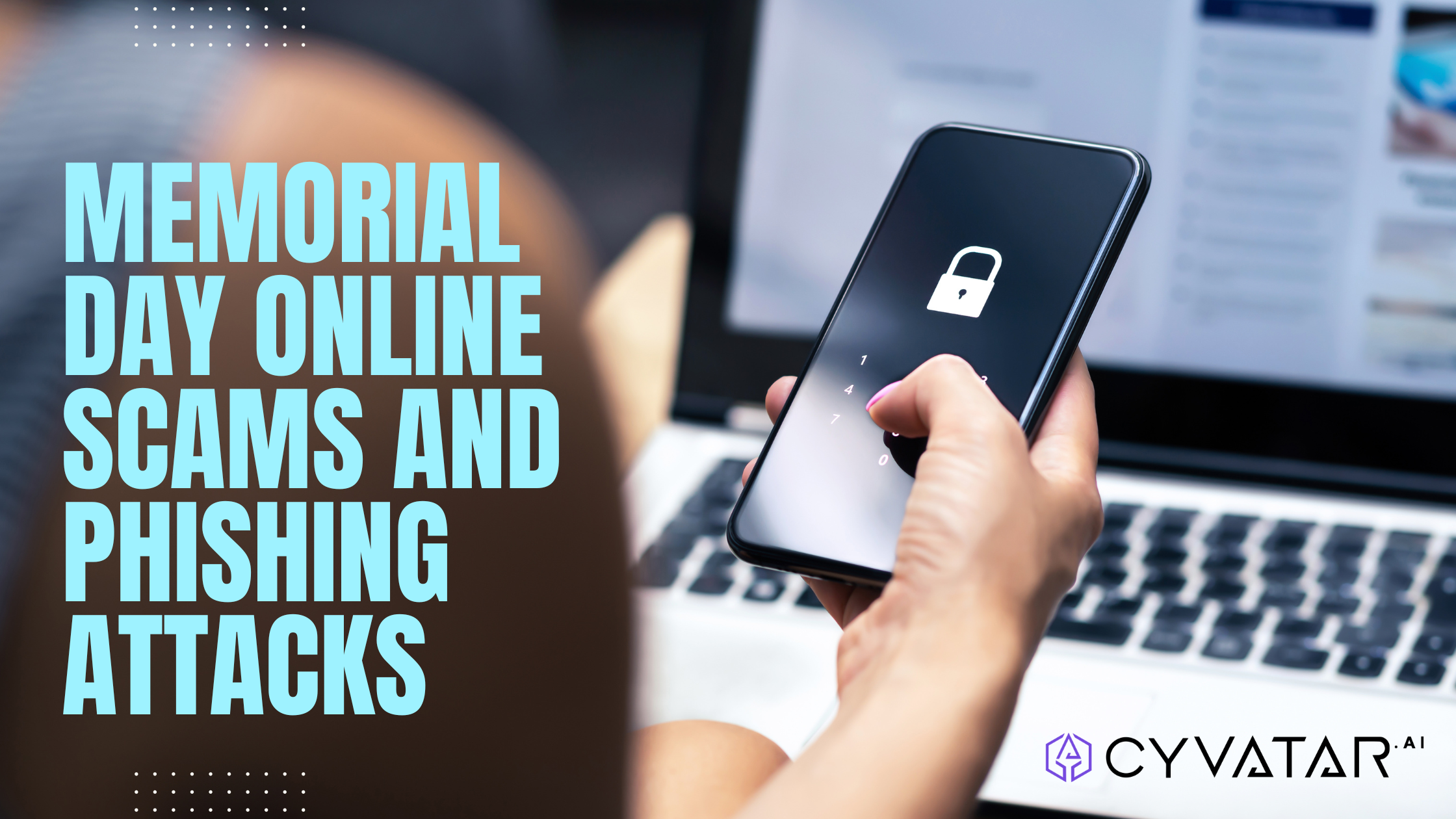Memorial Day Online Scams and Phishing Attacks

Memorial Day Online Scams and Phishing Attacks
Courtney Pereira | 05/21/2024Memorial Day is a time for reflection and celebration, but it also presents an opportunity for cybercriminals to exploit unsuspecting individuals through online scams and phishing attacks. These malicious actors often take advantage of the increased online activity during this period, targeting users with fake charity appeals, fraudulent travel deals, and counterfeit product offers. Here are some common scams to watch out for and tips to protect yourself.
Common Memorial Day Scams
- Fake Charity Appeals: Cybercriminals often create fake charities or impersonate legitimate ones to solicit donations. These scams can be particularly convincing during Memorial Day, as many people are looking to support veterans and military-related causes.
- Fraudulent Travel Deals: With many people planning trips for the long weekend, scammers may offer enticing travel deals that are too good to be true. These deals often require upfront payments and provide little to no actual services.
- Counterfeit Product Offers: Scammers may advertise heavily discounted products, such as electronics or branded merchandise, to lure in buyers. Once payment is made, the products either do not arrive or are counterfeit and of poor quality.
- Phishing Emails and Text Messages: Phishing attempts often spike around holidays, with cybercriminals sending emails or text messages that appear to be from trusted sources. These messages typically contain links to fake websites designed to steal personal information or install malware.
Tips to Protect Yourself
- Verify Charity Legitimacy: Before donating to any charity, research its legitimacy. Check the charity’s website for contact information and look for reviews or ratings on platforms like Charity Navigator. Avoid donating through links in unsolicited emails or messages.
- Be Cautious with Travel Deals: If a travel deal seems too good to be true, it probably is. Book travel arrangements through reputable websites and verify the legitimacy of any deals by contacting the travel provider directly. Be wary of requests for upfront payments or wire transfers.
- Shop from Trusted Sources: Only purchase products from reputable retailers. Be cautious of heavily discounted items and check for reviews and ratings of the seller. Use secure payment methods, such as credit cards or payment services with buyer protection.
- Recognize Phishing Attempts: Be skeptical of unsolicited emails or messages that request personal information or urge you to click on links. Verify the sender’s email address and look for signs of phishing, such as misspellings, generic greetings, and urgent requests. If in doubt, contact the organization directly using verified contact information.
- Use Security Software: Install and regularly update security software on your devices to protect against malware and phishing attacks. Enable browser security features that warn you of suspicious websites.
- Educate Yourself and Others: Stay informed about common scams and phishing techniques. Share this knowledge with friends and family to help protect them from falling victim to these threats.
By staying informed and vigilant, you can avoid falling victim to these scams and ensure a safe and enjoyable Memorial Day. Let’s honor the spirit of the holiday by protecting ourselves and our loved ones from cyber threats.
